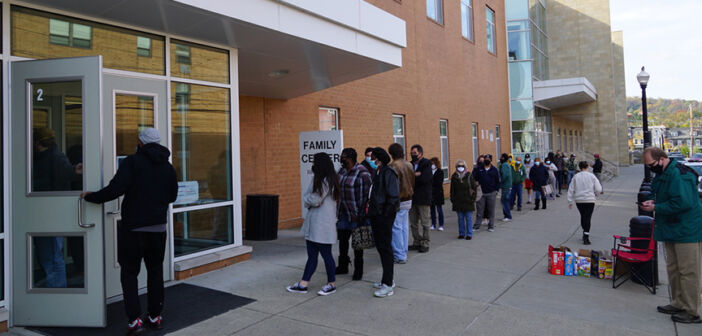The 2022 midterm elections have introduced some of the first Gen Z and late Gen X representatives to government positions due to high youth voter turnout.
Maxwell Alejandro Frost, a 25-year-old community organizer and politician, was elected to Congress after winning a House seat in Florida’s 10th Congressional District.
Frost’s win was historic, as he will be the first Afro-Cuban person in Congress, and will be the youngest active lawmaker in the House.
He advocates for stronger gun laws and supports progressive policies such as Medicare for All.
Similarly, Nick Miller, a 27-year-old Democrat from Allentown, was elected to the Pennsylvania Senate.
Miller’s opponent was Dean Browning, a 66-year-old Republican candidate, who Miller successfully beat in the election for Pennsylvania’s 14th District.
As a result, Miller is the youngest person to serve as a Pennsylvania Senator in 135 years.
Raihan Alam, ‘23, president of the Douglass Dialogues Club, said he believes young people have been elected into political office because of a large young voter turnout in the midterm elections.
It was estimated that 27% of young voters, ages 18-29, cast a ballot in 2022, making this a midterm election with the second-highest youth voter turnout in almost three decades, according to Tufts University’s Center for Information and Research on Civic Learning and Engagement.
In swing states such as Pennsylvania, the turnout was even greater at 31%.
“Exit polls show that young voters, between the ages of 18-29, were a driving force in blunting the projected red wave of this year’s midterms,” Alam said.
Marie Schenk, assistant professor of political science, said older voters have historically always been the people to show up at polls and vote.
“(Former President Barack) Obama was someone who really challenged this and went after young voters,” Schenk said. “He was running at a time when social media was becoming big, so he used it in a new way with Facebook and raising money.”
She said other candidates followed his lead, such as Alexandria Ocasio-Cortez and Bernie Sanders, in an effort to continue swaying young voters.
Alam said the 2016 election “woke up” younger generations, contributing to the large youth turnout for the midterm elections.
He said former President Donald Trump rolled back hundreds of environmental regulations, passed huge tax cuts for the wealthy and did not enact gun and police reforms.
“To bring the changes we want, we need politicians that are aligned with our interests when it comes to important socio-political issues,” Alam said. “Who better to fight for our interests than people from our generation?”
In terms of voter demographics, Alam said that the priorities of candidates like Frost align with members of Gen Z.
As young people today have witnessed a number of school shootings over the past years, he said gun violence has become a particularly salient issue to his generation.
“This is probably why Maxwell Frost won,” Alam said. “He was an organizer for March for Our Lives and had a platform that advocated for gun reform.”
Dean Freiman, ‘25, said electing officials who share the same beliefs as Gen Z is a part of why younger candidates are taking office.
He said for a long time, politics have been more about age than anything else.
“Gen Z and X candidates’ priorities align with the voter demographics because they share a mutual understanding of one another that is bonded through shared generational experiences,” Freiman said. “Generations who feed off of the same pop culture and the same industries are bound to develop together.”
Freiman said as the workforce shifts to younger ages, it is important that the politicians and leaders of this country serve in the best interest of those who run it.






Comment policy
Comments posted to The Brown and White website are reviewed by a moderator before being approved. Incendiary speech or harassing language, including comments targeted at individuals, may be deemed unacceptable and not published. Spam and other soliciting will also be declined.
The Brown and White also reserves the right to not publish entirely anonymous comments.